Even though gin is one of the spirits, it often doesn’t feel like one. Fruity flavor and floral infusions aren’t things most people associate with spirits. And that’s why there are so many questions about this alcoholic drink.
Obviously, the most often asked questions revolve around shelf life and going bad. Many people aren’t quite sure how long can gin sit in storage, or if an open bottle can go off. Of if the juniper-flavored drink requires refrigeration upon opening.
And those are perfectly valid questions. I mean with all the fruits and sometimes flower petals involved, it’s easy to forget that it’s still a distilled drink with a minimum of 37.5% ABV (75 proof) ([WIKI]). And that it’s not that much different from other spirits.
If you have any questions related to spoilage, shelf life, or storage of this popular cocktail ingredient, this article is for you. And the best way to start is to talk about spoilage.
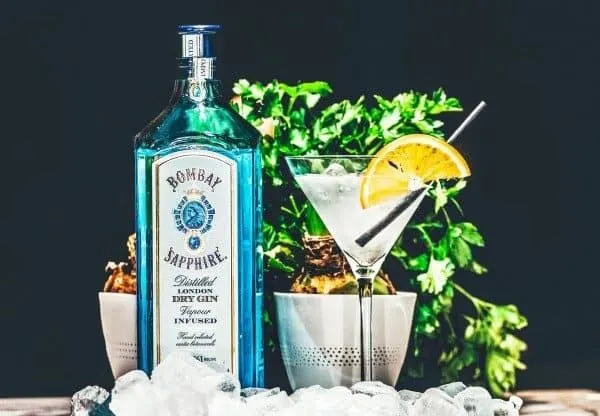
Can Gin Go Bad?
Before you mix your gin and tonic or make your own Sloe gin, you want to make sure that your old gin is still okay to use. And asking if it’s even possible that gin goes off is a logical first step.
Well, unless you go above and beyond to make it go bad, it won’t ([MCG]). The high alcohol content is an excellent preservative, so gin, like its cousins such as rum or tequila, stays safe to drink pretty much forever. But that doesn’t mean that it will remain the same in terms of flavor or appearance.
Gin is often infused with fruits and flowers, and the resulting alcohol can be of various colors. However, those colors are organic, and they tend to fade over time ([IG]).
If your beautiful flower-petal-infused gin has turned pale, it doesn’t mean it’s off. It’s most likely because the color naturally faded. That’s why some gin producers recommend enjoying their product within a year or two. They know that the colors keep well only for that long, and gin buyers usually prefer colorful drinks instead of pale ones.
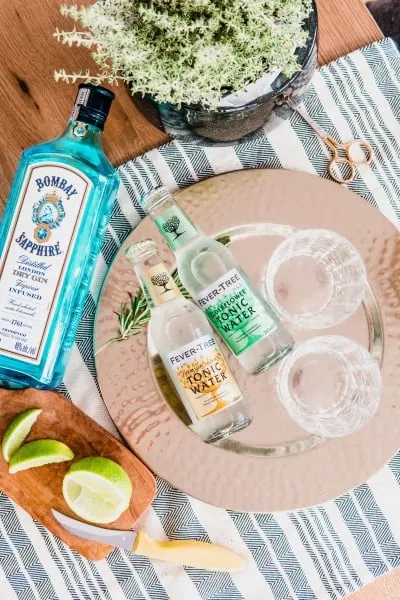
Another thing, especially common for flower-infused gins, is that after some time there might be sediment at the bottom of the bottle. This sediment consists of botanical particles that weren’t filtered out. They’re perfectly harmless ([MCG]), and you can drink up the last few drops.
Having said that, if it’s an old bottle, or opened for quite a few years already, and there’s anything off about the alcohol, like the color has changed significantly, or the smell is odd, toss it out. Such a situation is highly unlikely to happen, but you know, don’t drink that old gin right away just because “it can’t go bad.”
Of course, as I already hinted, gin won’t keep its quality forever, so I guess it’s time to talk about the shelf of this alcoholic drink.
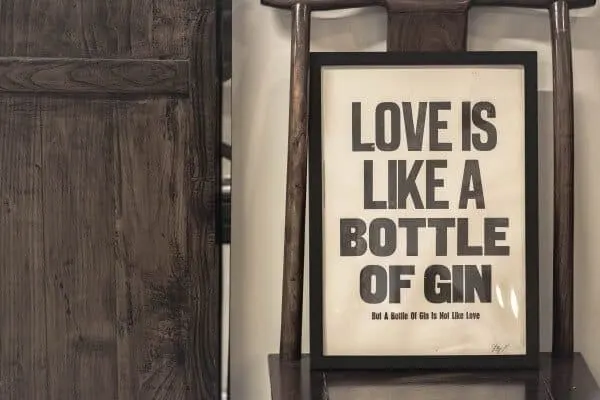
How Long Does Gin Last?
Like, vodka, whiskey, and other spirits, gin doesn’t benefit from prolonged storage. In other words, it doesn’t get better with age. And I’m pretty sure you already knew that, or at least expected, after reading the section about gradual color fading. So, how long does gin last?
Unfortunately, it’s impossible to tell. If it’s a floral infusion, the color will probably start to fade within a year or two, even if the bottle remains unopened. And while the taste after opening will be perfectly fine, you will be missing out on a part of the experience.
If you care about aesthetics, try to start the bottle within a year of buying and finish within a few months. If what you value most is the taste, you can keep an unopened bottle for years. The gin’s flavor doesn’t change much over time, as long as it’s unopened.
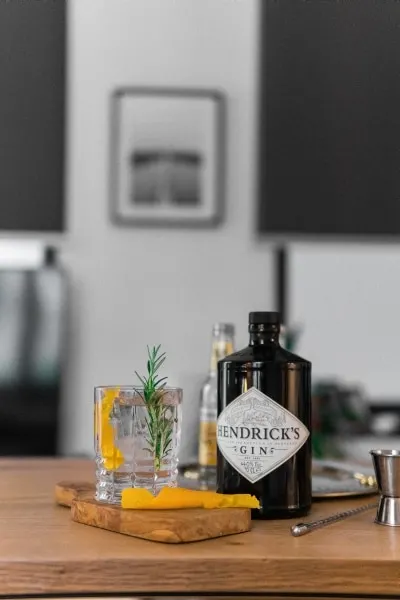
Once you unseal the bottle, things change slightly. Evaporation and oxidation come into play. While the evaporation process goes at a snail’s pace (unless you keep it in a hot place), oxidation slowly alters the taste of the alcohol.
If you want to see oxidation in action, pour some gin in a glass, leave it out overnight, and taste the next day.
What does that mean for an opened bottle? The better access to air the alcohol has, the quicker its taste will change. And the more oxygen in the bottle, the faster that process goes.
If you have an almost full bottle of gin, it will easily last years in good quality if stored properly. But if it’s only a few sips left in it, its flavor might degrade within a few months.
In short, the shelf life of opened gin depends on how much alcohol is in the bottle, and it ranges from only months to decades.
Knowing all of that, let’s talk about the last part of the puzzle: storage.
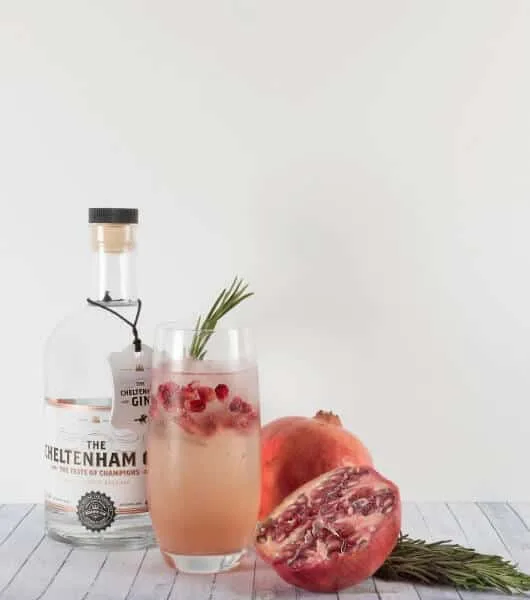
How To Store Gin?
The storage of gin is no different than the storage of other spirits. A cool and dark place is what you need ([MCG]), so a dark cupboard in the pantry or kitchen is probably the best option.
Of course, you can keep it in the fridge, but there’s little to no benefit to that. Unless, of course, you’re chilling it for the evening, so the ice cubes won’t melt that fast if you serve it on the rocks.
When it comes to temperature, make sure the bottle sits in a place where the temp stays pretty even. Temperature fluctuation and direct sunlight negatively affect the quality of alcohol, both unopened and opened.
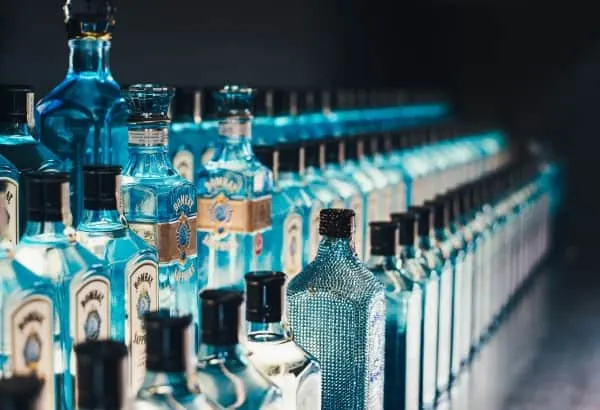
When it comes to storing gin after opening, not much really changes. Just remember always to keep the bottle sealed and follow the recommendations for unopened gin.
One trick you might find useful if it takes you ages to finish a bottle is to transfer the gin to a smaller one once the current one is less than half full.
This way you slow down the oxidation process because there will be less oxygen in the small bottle than in the big one. Of course, it only makes sense to do that if you know that you will store that half-full gin for months on end. It won’t make much of a difference if you finish the bottle within a month or two.
In a Nutshell
- gin doesn’t really go bad, but it slowly degrades in flavor after opening
- many colorful floral and fruit infusions tend to turn paler over time, that’s normal and harmless to the alcohol
- keep it in a dark and cool place, away from direct light and heat sources
References
- [WIKI] Wikipedia: Gin
- [IG] Ink Gin: FAQ
- [MCG] McLean’s Gin: FAQ